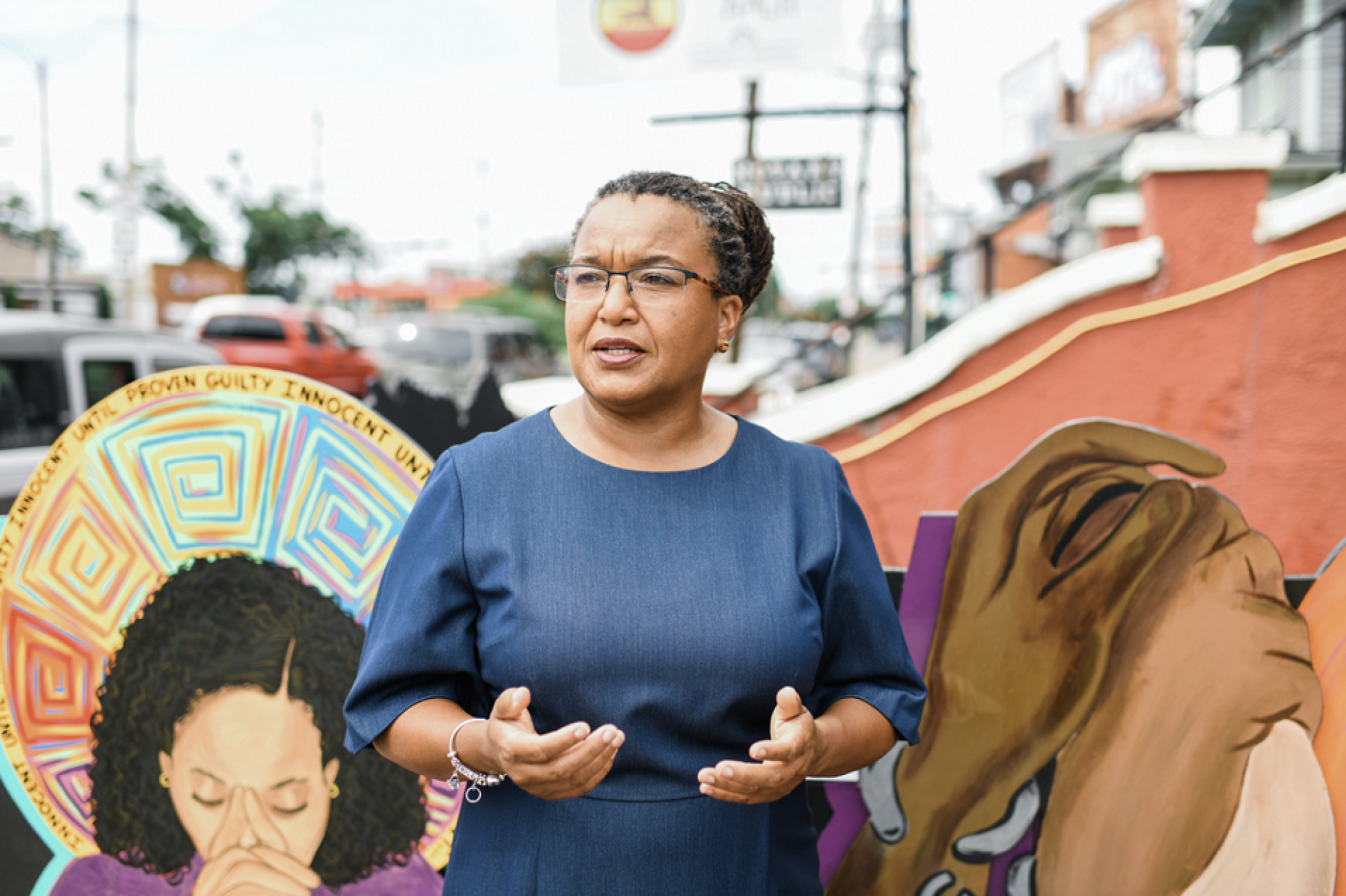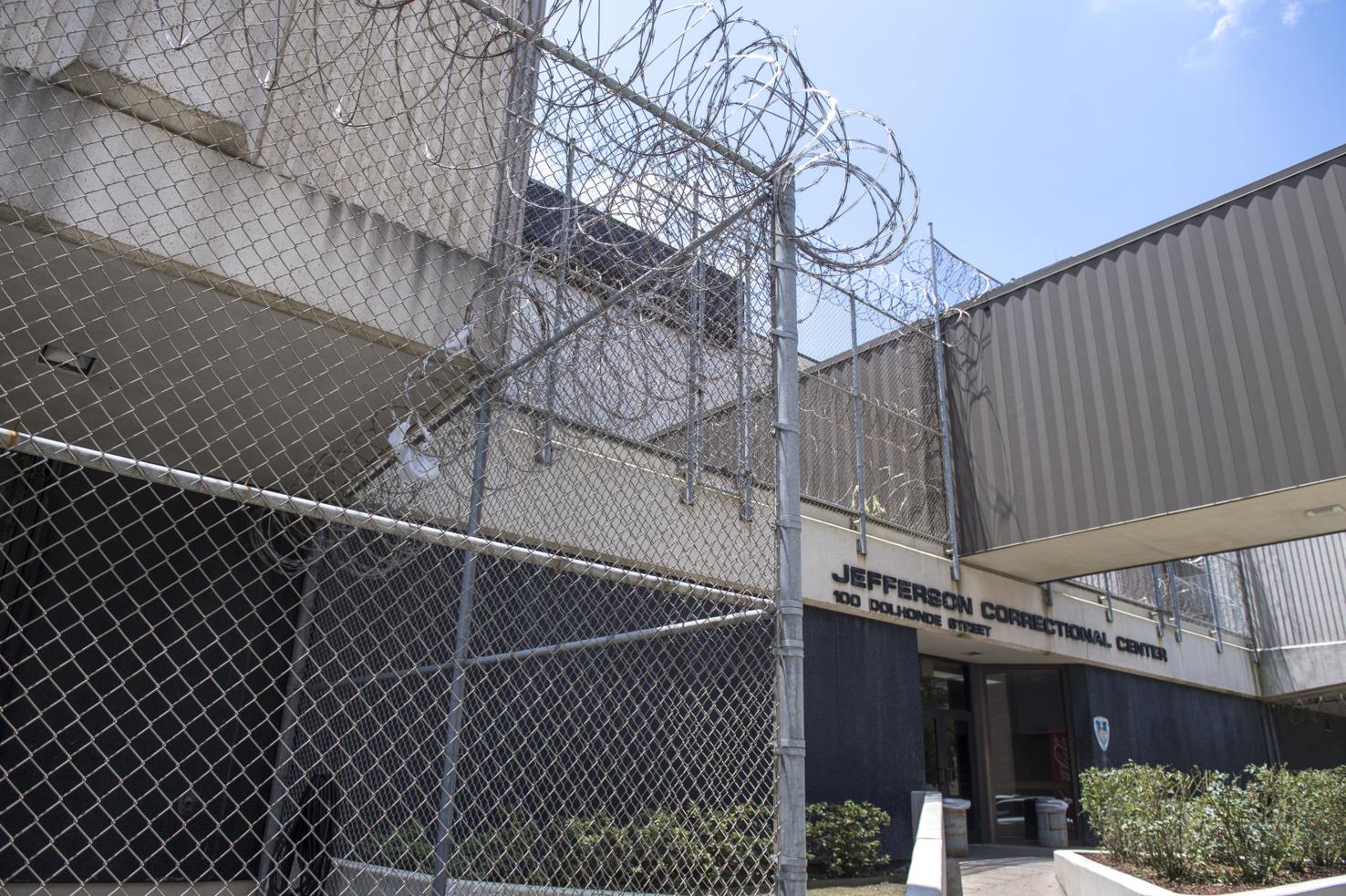
Orleans Parish Sheriff Susan Hutson is a defendant in the wrongful death lawsuit.
Freedom: not under the influence of power or control and the ability to act as one wishes.
To most, America is known as the “land of the free. America protects five freedoms: freedom of speech, religion, press, right to petition the government, and assembly. Meaning, people can speak their opinions, can follow their desired religion, report news, inquire their government about changing policies, and can associate with any particular group. But America is not free of corruption, lies, or greed.
Half of the two million people incarcerated in America’s prisons are imprisoned for drug offenses (Sentencing Project). The objective of jail is to end or temporarily halt the crime infiltrating America. Placing drug users, for instance, in jail does not “cure” people of their addiction. For people with drug offenses, jail really is not beneficial.
Imprisoned people often interact with drugs when they’re feeling lonely and are unwilling to call for help when there is an issue (Louisiana Record). While jails may have guidelines surrounding access to illegal substances, imprisoned people will find a method to attain drugs. Considering the little care and effort prison guards place on looking after their prisoners, these guards fail to provide assistance, find medical assistance, or notify a person when a prisoner is engaging with or overdoses on deadly opioids. In the absence of vital assistance, these prisoners will continue to endure a painful cycle of drug addiction, risk their lives, and continue hurting themselves, their families, and friends.
Recently, on July 22, 2021, in New Orleans, Louisiana, a man overdosed in a jail cell. Anthony Hunt, convicted of an out-of-state arrest warrant, was not sufficiently searched before being placed in the jail cell. Hunt’s family claims that the multiple personnel and Sheriff’s officers placed little effort or care into ensuring Hunt’s safety, placing his life at severe risk. After a day of being imprisoned, Hunt was found dead after overdosing on fentanyl, a powerful opioid. When convicting a person of a crime, skipping certain measures is intolerable. Instead of assuming what a person has done, it is essential to fact-check.

The Orleans Justice Center. (Michael Isaac Stein/The Lens)
To have a family member suffer at the hands of the corrupt Louisiana criminal justice system and to first-hand experience the lack of concern officers display can be extremely painful. Hunt is a prime example of what will continue to occur if prison reform is not implemented. He remains another loss to the Black community.
As a society, we should use Hunt’s devastating story to drive change in America’s criminal justice systems. Spotlighting these problems will assist in attracting a larger, more diverse audience. If officers are to support, assist, and keep America safe, officers should have been present to prevent Hunt’s overdose. Checking in on prison inmates and offering support is simple and easy to manage, but the pain their families feel when something tragic like an overdose occurs will always be gut-wrenchingly irreversible. Hunt was not living in the “free” America that seems to be advertised. He was living in the corrupt, limiting, unfair America. The current situations that are “swept under the rug” in America’s criminal justice system encourage the officers’ wrongful behavior. It creates an even more unhealthy, unsustainable, lifestyle for the inmate. Recognizing these faults within our country’s systems will bring society a step closer in fighting for justice for Hunt and his family.
If you are struggling or know any person struggling with addiction, help is available. The SAMHSA National Helpline offers confidential free assistance, from public health agencies, to find substance use treatment and information. Please call 1-800-662-4357 or find a treatment center near you.
This piece is part of the “Punishment and Redemption” series. The class and writing workshops that produce the content for this series is taught by Professor Betsy Weiss at Tulane University.
 NOLAbeings Multimedia artist Claire Bangser created NOLAbeings as a portrait-based story project that marries...
NOLAbeings Multimedia artist Claire Bangser created NOLAbeings as a portrait-based story project that marries...  Voodoo in New Orleans: Reviving history: New Orleans fortune telling This article takes a deep dive into the history of Voodoo in New Orleans, its hybridization with Catholicism, and its present-day place in the city's culture. The author visits fortune-tellers in the French Quarter, using their guidance as a tool for introspection rather than a deterministic predictor of the future. Through her experiences in New Orleans, the author feels a mystical connection to both the past and the future.
Voodoo in New Orleans: Reviving history: New Orleans fortune telling This article takes a deep dive into the history of Voodoo in New Orleans, its hybridization with Catholicism, and its present-day place in the city's culture. The author visits fortune-tellers in the French Quarter, using their guidance as a tool for introspection rather than a deterministic predictor of the future. Through her experiences in New Orleans, the author feels a mystical connection to both the past and the future. 